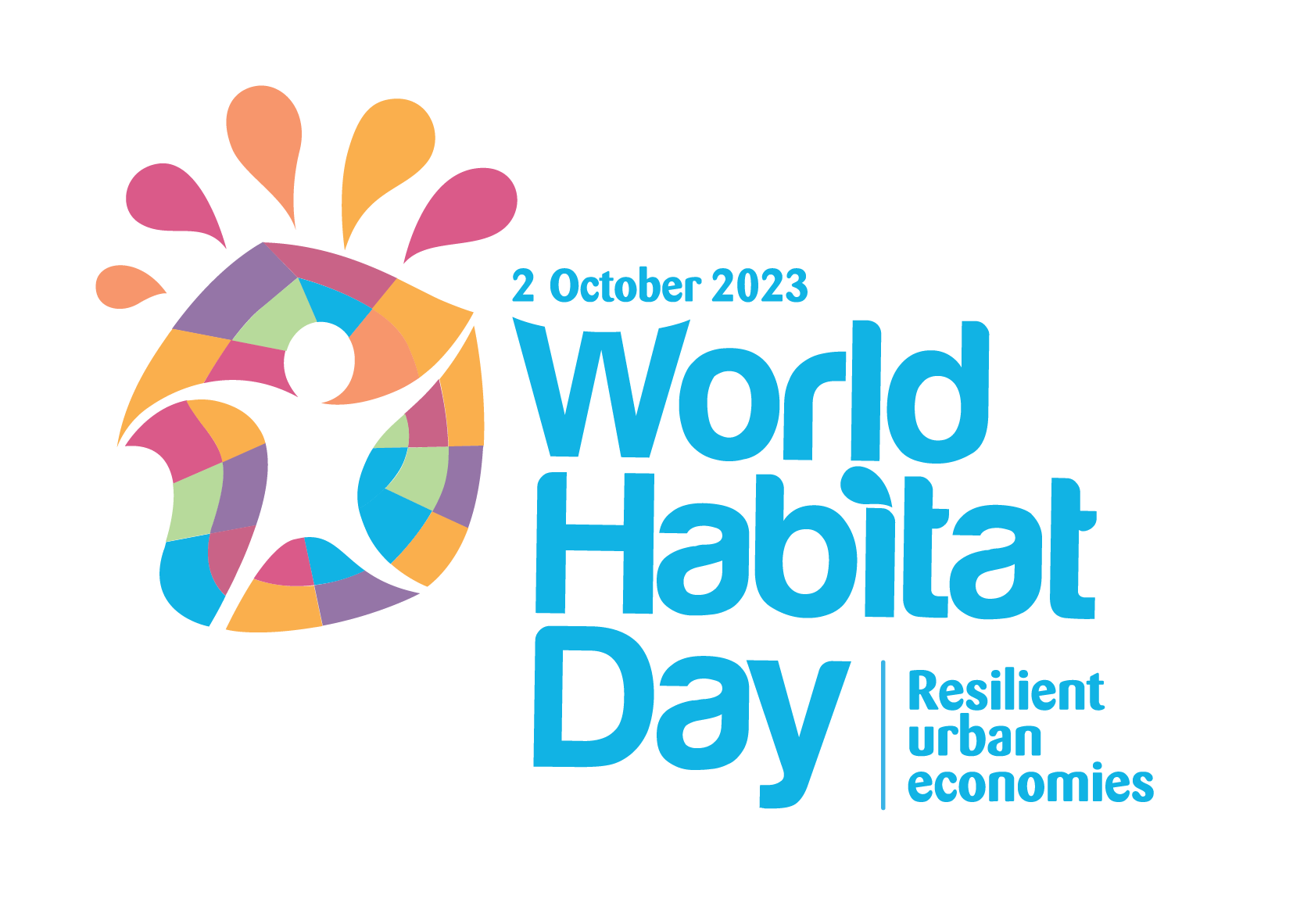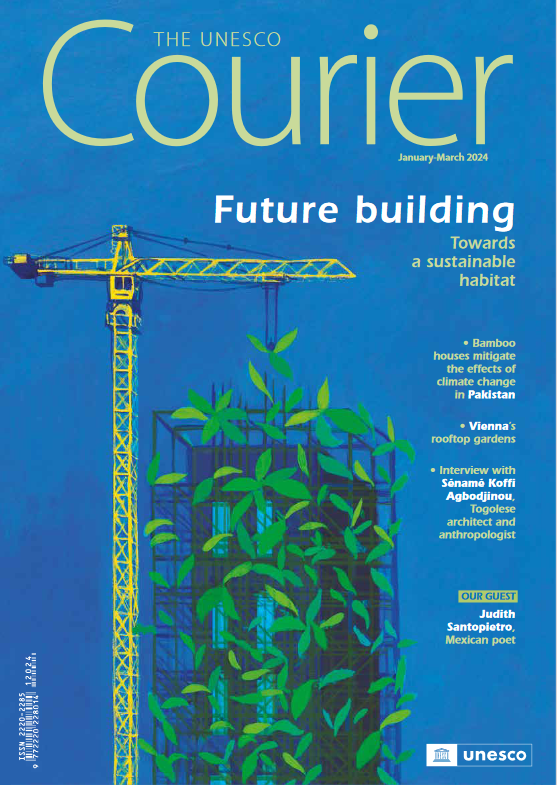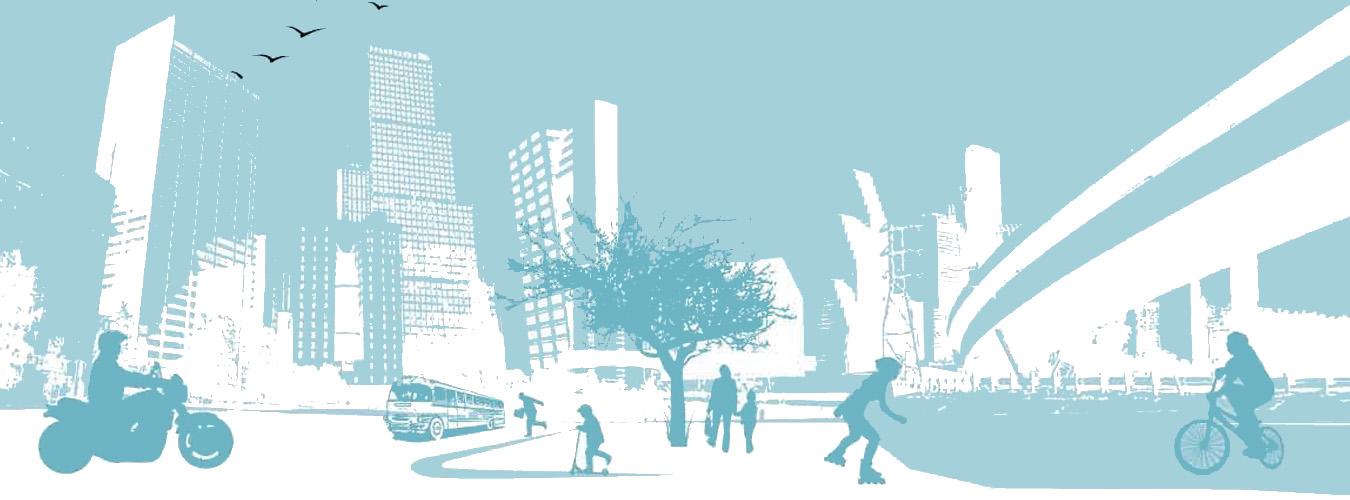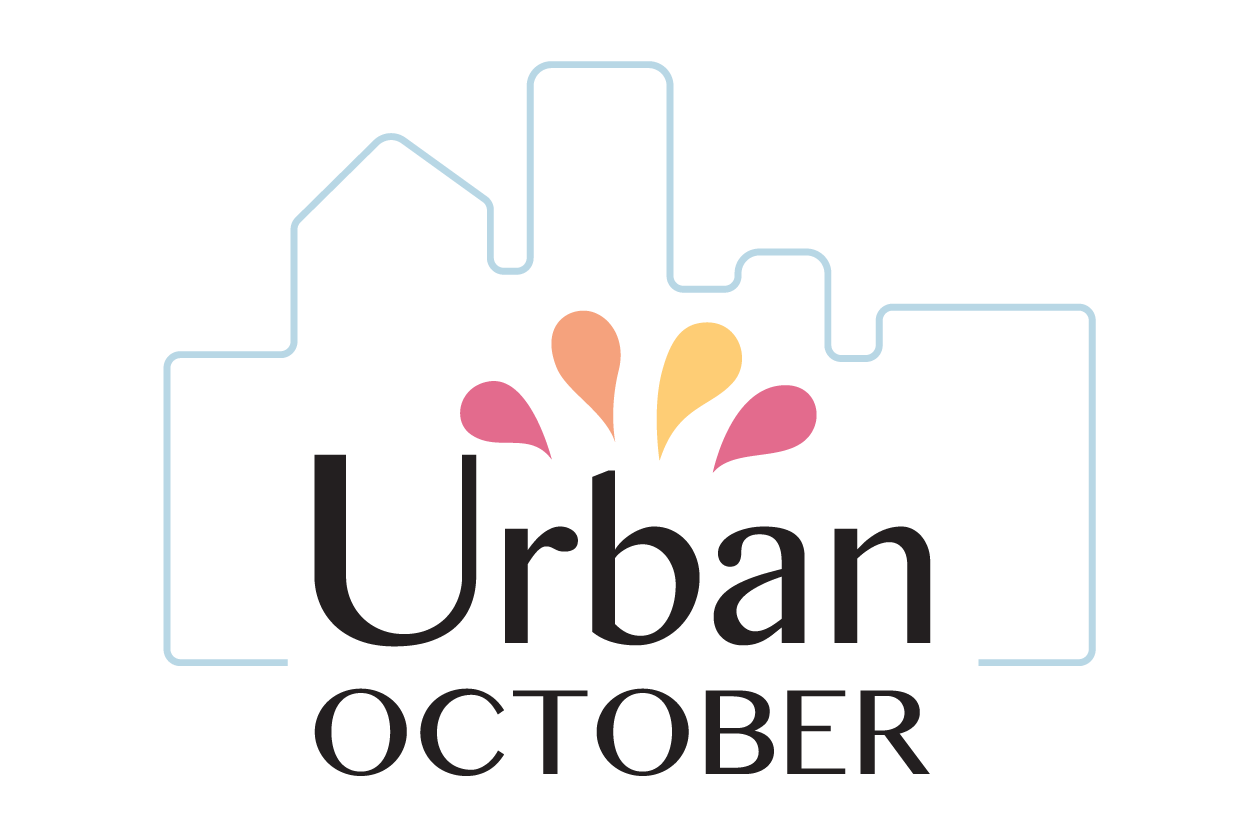2023 Theme:
Resilient urban economies. Cities as drivers of growth and recovery
This year's World Habitat Day aims to convene various city stakeholders to discuss the ways in which cities can be primed for recovery following the global intersecting negative economic shocks of COVID-19 and conflicts by:
- Broaching the different dimensions of economic slowdown that cities are currently experiencing and identifying actions that cities can take to boost economic recovery.
- Sharing experiences among different cities on how they are positioning themselves to tackle inflationary pressures and other tight global financial conditions.
2023 has been a particularly challenging year for Urban Economies. The global economy growth itself is declining to about 2.5% and, apart from the initial COVID-19 crisis in 2020 and the global financial crisis in 2009, this is the weakest growth experienced since 2001 [WEO by the IMF].
Given the size of the contribution of cities to the national economy, the future of many countries will be determined by the productivity of its urban areas. Cities are the engines creating the value that boosts economic recovery.
For this economic growth and recovery to be sustainable, we need cities that can absorb, recover, and prepare for future economic shocks [OECD, 2023]. It is crucial that this is also packaged under the green recovery framework that scales up private and public investments to finance the transition to a climate-neutral economy in a post-COVID world.
Cities all over the world have already embarked on this journey through implementing various models. UN-Habitat, in partnership with the World Economic Forum, believes that these models can be localized and scaled up through the Global Partnership for Local Investment, where experiences are shared to build a local finance framework for cities and communities, to help distribute existing funding and finance to where it can deliver the greatest impact.
In the prevailing economic situation, local governments have faced increased difficulty to gain increased access to external resources to fund their development. The local finance framework integrates three key solutions to facilitate this access:
- Cities Investment Facility (CIF)
- UN-Habitat/UNCDF Guarantee Facility for Sustainable Cities
- Rapid Own Source Revenue Analysis (ROSRA)
2023 Scroll of Honour Award
UN-Habitat, the United Nations agency focusing on sustainable urbanization, launched nominations for its prestigious 2023 Scroll of Honour Award. Nominations were open 20 March - 20 June 2023. Winners will receive their awards at the global observance of World Habitat Day, 2 October 2023. More information on the Award
Background
The United Nations designated the first Monday of October of every year as World Habitat Day to reflect on the state of our habitats, and on the basic right of all to adequate shelter. The Day is also intended to remind the world that we all have the power and the responsibility to shape the future of our cities and towns.
In 1985 the United Nations designated the first Monday of October every year as World Habitat Day. The idea is to reflect on the state of our towns and cities and the basic right of all to adequate shelter. It is also intended to remind the world of its collective responsibility for the future of the human habitat.
History
World Habitat Day was first celebrated in 1986 with the theme "Shelter is My Right". Nairobi was the host city for the observance that year. Other previous themes have included: "Shelter for the Homeless" (1987, New York); "Shelter and Urbanization" (1990, London); "Future Cities" (1997, Bonn); "Safer Cities" (1998, Dubai); "Women in Urban Governance" (2000, Jamaica); "Cities without Slums" (2001, Fukuoka), "Water and Sanitation for Cities" (2003, Rio de Janeiro), "Planning our Urban Future" (2009, Washington, D.C.), "Better City, Better Life" (2010, Shanghai, China) and Cities and Climate Change (2011, Aguascalientes, Mexico).
Scroll of Honour award
The UN-Habitat Scroll of Honour Award was launched by the United Nations Human Settlements Programme in 1989. It is currently the most prestigious human settlements award in the world.
The Scroll of Honour Award aims to acknowledge initiatives which have made outstanding contributions in various fields such as shelter provision (providing adequate, affordable, and accessible housing), highlighting the plight of the homeless, leadership in post conflict reconstruction, and developing and improving the human settlements and the quality of urban life.
The Scroll of Honour Award recognizes both individuals and institutions that have made outstanding contributions to urban development.

Local action is vital, and global cooperation indispensable. […] Let us pledge to build inclusive, safe, resilient, and sustainable human settlements for all people, everywhere."
António Guterres
Resources

Websites
- World Habitat Day 2023 - official website
- World Habitat Day: Past events
- UN Habitat
- Habitat III Conference
- Global Urban Observatories
- Urban October
- UNESCO
- Sustainable Development Goals
- Goal 11: Cities
- World Cities Day
Documents
- UN General Assembly resolution establishing World Habitat Day (A/RES/40/202)
- The New Urban Agenda (Habitat III)
- Report of the UN Conference on Human Settlements (HABITAT II, Istanbul, 3-14 June 1996, A/CONF.165/14)
- Report of the Secretary General: Implementation of the outcome of the UN Conference on Human Settlements (Habitat II) and strengthening of the UN Human Settlements Programme
Future building:
towards a sustainable habitat

The energy-intensive building sector alone accounts for 39 per cent of global carbon emissions. In light of this, a fundamental transformation is the only option for the sector to become eco-responsible. Innovative technologies, the role of recycling in the built environment, the use of natural materials, and construction techniques adapted to local conditions are some of the paths to be explored in the quest for more sustainable architecture.
Download UNESCO's publication




